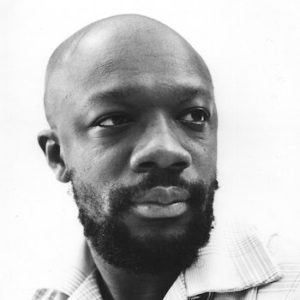
Issac Hayes
Issac Hayes was born on this date in 1942. He was a Black singer, composer, and entertainer.
Hayes was born in Covington, TN. His parents died during his infancy, and his grandparents raised him. After making his public debut singing in church at five, he taught himself piano, organ, and saxophone. At a young age, he moved to Memphis to work as a musician in the city's club circuit. He played with some short-lived groups, such as Sir Isaac and the Doo-Dads, the Teen Tones, and Sir Calvin and His Swinging Cats.
In 1962, he began his recording career, recording for various labels. Two years later, Hayes began playing sax with the Mar-Keys, which resulted in the beginning of his long association with Stax Records. After playing in several sessions for Otis Redding, Hayes began to play keyboards in the Stax house band and eventually established a partnership with songwriter David Porter. Under the name the Soul Children, the Hayes-Porter duo composed over 200 songs, including a string of hits for Stax luminaries like "Sam & Dave," the brilliant "When Something Is Wrong With My Baby," "Soul Man," and "Hold On, I'm Comin'"), Carla Thomas ("B-A-B-Y,"), and Johnnie Taylor ("I Got to Love Somebody's Baby," and "I Had a Dream").
In 1967, Hayes issued his debut solo LP, "Presenting Isaac Hayes." With the release of 1969's "Hot Buttered Soul," he made his commercial breakthrough. The record's adventuresome structure (comprising four lengthy songs) made Hayes one of the most distinctive figures in music. After a pair of 1970 releases, "The Isaac Hayes Movement" and "To Be Continued," he reached his commercial zenith in 1971 with the release of "Shaft," the score from the Gordon Parks film of the same name. The album won Hayes an Academy Award for Best Score (the first Black composer to receive such an honor), and the single "Theme From " and 1973's "Joy" were released; Hayes composed two 1974 soundtracks, "Tough Guys" and "Truck Turner," in which he also starred.
By 1975, relations with Stax had disintegrated following a battle over royalties, and soon he severed his ties with the label to form his own Hot Buttered Soul imprint. Although both 1975's "Chocolate Chip" and 1976's "Groove-a-Thon" went gold, his records of the period attracted considerably less attention than prior efforts, and Hayes had no choice but to file for bankruptcy in 1976.
After his 1977 double LP "A Man and a Woman," recorded with Dionne Warwick, Hayes began a comeback. Following the success of his 1979 collection of duets with Millie Jackson titled "Royal Rappins," he issued a pair of solo records, And Once Again (the 1980s) and "Lifetime Thing" (1981), before retiring from music for five years. After returning in 1986 with "U-Turn" and the Top Ten R&B hit "Ike's Rap," Hayes released "Love Attack" before again dropping out of music to focus on acting. In 1995, after converting to Scientology, Hayes emerged with two concurrent releases, the vocal "Branded" and instrumental "Raw and Refined."
Under the official name Nene Katey Ocansey I, he also served as a member of the royal family of the African nation of Ghana while an actor, composer, and humanitarian. In 1997, Hayes did voice work on the animated series South Park. He also contributed the infamous "Chocolate Salty Balls" to the South Park tie-in album "Chef Aid" and appeared in the film "South Park: Bigger, Longer, Uncut."
In 2000, Hayes appeared in the remake of "Shaft." The following year, he worked with Alicia Keys. Hayes, a member of the Rock and Roll Hall of Fame, died on August 10, 2008, after collapsing near a treadmill in his home in Memphis, TN.